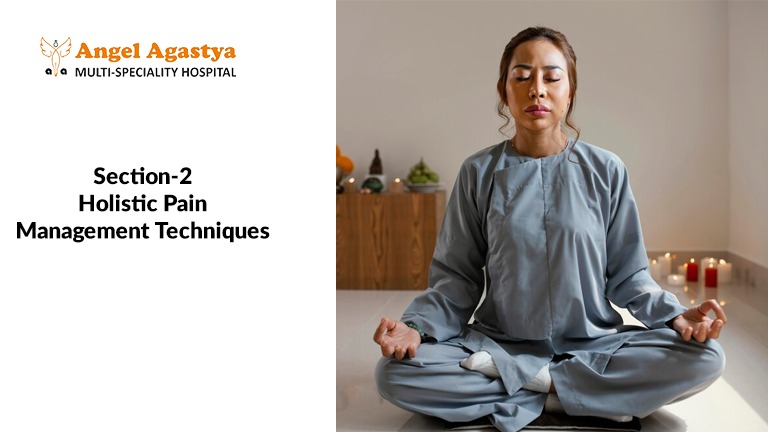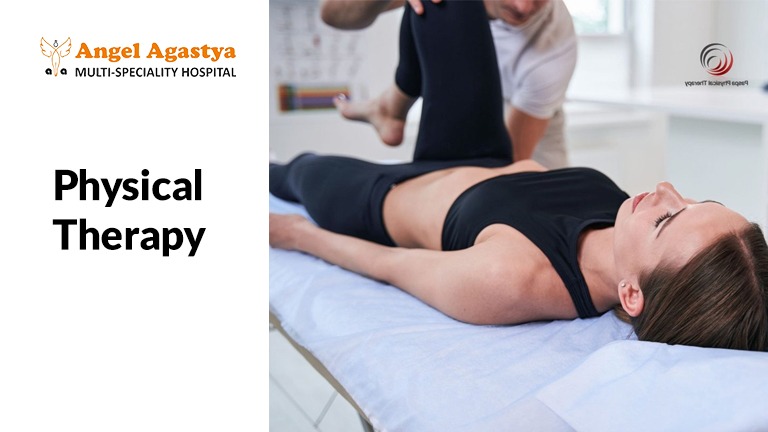Taming Endometriosis Pain: Holistic Solutions That Work
Living with endometriosis pain can feel overwhelming, but what if there were natural, non-invasive ways to find relief? Discover holistic approaches that soothe the body and calm the mind—giving you control over your health and well-being.
INTRODUCTION
Endometriosis is a complex and often painful condition where tissue similar to the uterine lining grows outside the uterus, leading to chronic pain, inflammation, and, in many cases, fertility challenges. For many women, managing the symptoms can be a lifelong challenge, with traditional treatments like surgery, hormonal therapy, and painkillers offering varying degrees of relief. However, holistic approaches are increasingly being explored and embraced, offering a range of natural methods to manage the pain and improve overall well-being.
Holistic endometriosis treatment provides a complementary path that focuses on natural, non-invasive techniques to manage symptoms. By addressing the root causes, such as chronic inflammation and hormonal imbalances, these methods empower women to regain control of their health. This blog delves into holistic techniques, including dietary changes, mind-body practices, and physical therapy, offering a comprehensive guide for managing endometriosis pain effectively.
This blog explores non-surgical holistic techniques to manage pain and improve overall well-being as part of a comprehensive endometriosis treatment plan.From mind-body practices to dietary changes and physical therapy, this guide will provide you with options that complement traditional treatments and empower you to take control of your health.
Understanding Endometriosis and Chronic Pain
What is Endometriosis?
Endometriosis occurs when tissue similar to the endometrium, which lines the uterus, grows outside it. These tissues often attach to organs such as the ovaries, fallopian tubes, and pelvic walls. Unlike normal uterine lining that is shed during menstruation, this tissue has no exit route, leading to inflammation, scarring, and adhesions.
The result is intense pain, especially during menstrual periods. It can also contribute to heavy bleeding, bowel and bladder dysfunction, and, in severe cases, infertility. Early diagnosis and a tailored endometriosis treatment plan are vital for managing this condition effectively.
The Role of Inflammation
A key factor in the pain associated with endometriosis is inflammation. When endometrial tissue grows in areas where it doesn’t belong, it can cause irritation and inflammation, leading to a Chain reaction of symptoms including chronic pelvic pain, heavy menstrual bleeding, and bowel or bladder issues. The body’s inflammatory response can further Worsen the pain and discomfort, making the condition harder to manage.
Addressing inflammation is a cornerstone of effective holistic treatment. Natural methods like anti-inflammatory diets and stress management techniques can significantly reduce pain and improve overall well-being.
Holistic Pain Management Techniques

can help reduce pain and improve quality of life in individuals with chronic conditions, making them excellent complementary therapies for endometriosis treatment strategy.
Mind-Body Practices
Stress and chronic pain often go hand in hand, and endometriosis is no exception. Mind-body techniques are essential components of holistic treatment, helping to reduce stress, enhance emotional resilience, and alleviate physical discomfort.
Meditation and Mindfulness
Meditation and mindfulness practices are powerful tools for managing the psychological and physical impacts of endometriosis. These techniques help calm the nervous system, lower cortisol levels, and improve the perception of pain.
Try it: Dedicate 10–15 minutes each day to guided meditation using apps like Headspace. Deep breathing exercises can also help you stay grounded during flare-ups.
Yoga and Stretching
Yoga can significantly reduce tension in the pelvic area, improve flexibility, and alleviate endometriosis pain. Certain poses target the pelvic muscles, promoting relaxation and reducing cramping.
Try it: Incorporate poses like Reclined Butterfly, Cat-Cow, and Child’s Pose into your routine. These are especially beneficial for stretching and strengthening the lower abdomen.
Dietary Changes
Diet is a critical aspect of managing symptoms through holistic endometriosis treatment. Research has shown that certain foods can either exacerbate or reduce inflammation, so focusing on an anti-inflammatory diet is key.
Anti-inflammatory Diet
Eating a diet rich in anti-inflammatory foods can help reduce the effects of it. Foods like leafy greens, berries, fatty fish, and whole grains can combat the chronic inflammation caused by the condition.
- Try it: Incorporate foods high in omega-3 fatty acids (such as salmon and flaxseeds), antioxidants (berries, nuts), and fiber (whole grains, legumes) into your meals. Avoid processed foods, sugar, and refined grains, as they can contribute to inflammation.
Nutrient-Rich Foods
Ensuring you’re getting enough essential vitamins and minerals is important for overall health and managing chronic pain. Vitamin D, magnesium, and zinc have been highlighted as beneficial in managing its symptoms.
- Try it: Include foods like almonds (magnesium), spinach (iron), and fortified cereals (vitamin D) in your daily diet.
Hydration
Staying well-hydrated is essential for overall health and particularly important for women with it. Proper hydration can help reduce bloating and ease digestion, both of which can be aggravated by endometrial lesions.
- Try it: Aim to drink at least 8-10 glasses of water per day, and consider herbal teas like chamomile or ginger to reduce inflammation and soothe discomfort.
Supplements and Herbal Remedies

Supplements like omega-3 fatty acids and herbs such as turmeric have anti-inflammatory properties that complement traditional endometriosis treatment methods.
- Inositol: Helps regulate hormones and supports inflammation management in this treatment.
- Omega-3 Fatty Acids: Known for reducing inflammation, they are an essential part of any holistic treatment approach.
Always consult your doctor before incorporating new supplements into your treatment regimen.
Inositol
This natural compound can help regulate hormones and reduce inflammation, making it a potential aid for women dealing with endometriosis-related pain.
Omega-3 Fatty Acids
Omega-3 fatty acids are known for their anti-inflammatory properties. These can help alleviate the pain caused by endometriosis by reducing the body’s inflammatory response.
- Try it: Incorporate omega-3 supplements or fish oil capsules into your daily routine, or add fatty fish like mackerel, tuna, or salmon to your diet.
Other Supplements
While supplements like turmeric (curcumin) and magnesium can help reduce pain and inflammation, it’s crucial to consult your doctor before starting any new supplements to avoid interactions with other medications.
Physical Therapy

Physical therapy can play a vital role in alleviating symptoms and complementing other forms of endometriosis treatment.
Pelvic Floor Therapy
Pelvic floor physical therapy is an effective treatment for its pain. It involves strengthening and relaxing the pelvic muscles, which may be tense or weak due to chronic pain.
- Try it: Consult a licensed physical therapist who specializes in pelvic floor therapy to learn exercises tailored to your needs.
Heat and Cold Therapy:
These simple methods provide immediate pain relief, a valuable addition to holistic endometriosis treatment strategies.
Pain Management Techniques
Simple pain management techniques like heat therapy, cold therapy, and massage can be effective in managing Sudden pain of endometriosis pain.
- Try it: Use a heating pad on your lower abdomen to soothe cramping, or take a warm bath to relax the pelvic area. Cold packs can be used to reduce inflammation and numb pain after particularly painful episodes.
Seeking Professional Help
Consulting a Healthcare Provider
Endometriosis is a challenging condition, but holistic approaches can significantly improve the quality of life for many women dealing with chronic pain. If you experience severe symptoms, consult an OB-GYN or specialist to create a comprehensive treatment plan.Endometriosis is a medical condition that requires a proper diagnosis and treatment plan from a healthcare provider. While holistic techniques are helpful for managing symptoms, it’s essential to work alongside a medical professional for comprehensive care.

Finding a Pain Management Specialist
If chronic pain persists despite holistic interventions, a pain management specialist can help develop a comprehensive plan. This may include nerve blocks, prescription medications, or other therapies that work in conjunction with holistic approaches to provide more substantial relief.
Conclusion
Endometriosis is a challenging condition, combining holistic methods with professional endometriosis treatment can improve life quality. Mind-body techniques, dietary changes, supplements, and physical therapy are all powerful tools in managing endometriosis symptoms.
By combining these holistic strategies with medical treatment, individuals with endometriosis can take control of their health, reduce pain, and enhance their overall well-being.
FAQs
FAQs
- What are the common symptoms of endometriosis?
- Symptoms include pelvic pain, painful periods, and fertility issues.
- How is endometriosis diagnosed?
- Diagnosis is typically confirmed through laparoscopy, a minimally invasive surgery.
- Can diet affect endometriosis symptoms?
- Yes, an anti-inflammatory diet can reduce pain and inflammation.
- How can I manage stress and anxiety associated with chronic pain?
- Practices like meditation, yoga, and mindfulness can help reduce stress levels.
- Are there any specific exercises that can help with endometriosis pain?
- Gentle yoga, Stretching exercises and pelvic floor exercises are particularly beneficial.
- What are the benefits of acupuncture for endometriosis pain?
- Acupuncture may help by reducing inflammation and promoting relaxation.
- Can supplements help reduce endometriosis symptoms?
- Omega-3s, turmeric, and inositol are some supplements that may help alleviate symptoms.
- When should I seek professional help for chronic pain?
- If pain becomes unmanageable or significantly impacts daily life, it’s important to seek medical advice.
- What are the long-term effects of chronic pain on overall health?
- Chronic pain can lead to mental health issues such as anxiety and depression if not properly managed.
- How can I find support groups for women with endometriosis?
- Many online communities and local support groups are available for women dealing with endometriosis.
By integratingholistic approaches, you can take steps towards living a more comfortable and balanced life, even with endometriosis.

